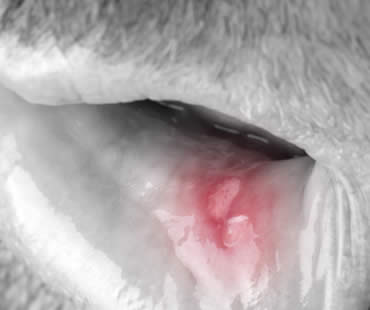
For people who don’t feel confident about showing their teeth when smiling, dental veneers provide a great way to restore self-esteem and quickly create beautiful smiles. No longer only for the rich and famous, the secret of transforming smiles with veneers is out for everyone to enjoy the benefits.
Veneers are thin shells that go over the front surfaces of your teeth to hide imperfections. They are customized just for you so that they look very natural and appealing. Veneers cover problems like stained, chipped, crooked, or misshapen teeth. The most common materials that veneers are made from are composite or porcelain. Here are the details about each of these types of veneers.
Composite
- Has an opaque finish, but it’s difficult to match the color of your existing tooth enamel color
- Lifespan is usually two years or less
- Susceptible to staining because of its porous characteristics
- Requires careful and consistent maintenance to keep them looking good as long as possible
- Typically lower in cost than other types of veneers
Porcelain
- Has an opaque finish that appears natural and coordinates well with the color and texture of existing teeth
- Lifespan is usually from five to ten years
- Does not stain
- Requires good dental hygiene for the best results
Whichever type of dental veneers you might select, chances are good that you will be glad you chose to restore your smile in this way. People won’t even realize that underneath the veneers you have crooked, discolored, uneven, or chipped teeth. Your secret will be safe, thanks to the technology of dental veneers.
Our dental office is located in Meriden

Your dentist plays an important role in your family’s healthcare. It’s more than just a teeth cleaning to keep your smile looking good; it’s a partner who helps ensure both your oral and your general health are the best they can be. That’s why it’s imperative to choose a qualified and skilled dental professional that you can stick with through the years to manage the oral health of each member of your family.
Ask friends, coworkers and neighbors for recommendations for a family dentist or conduct an online search. Once you have narrowed down your choices, schedule a consultation so that you can gather more information and get a feeling about the practice.
Consider the dentist’s credentials and experience. The dentist should have graduated from an accredited dental school and passed all exams and other requirements. Find out if the dentist has any specializations that you or a family member might be interested in, such as orthodontics or root canal therapy. If the practice offers more than one dentist in a group, make sure anyone you’ll see has the same level of experience and training. Ask about continuing education to see if the dentist keeps up with the most current techniques and trends.
Every family dentist should be willing to work with patients of all ages, but if you have family members who are very young or very old, make sure the dentist is skilled in their specific care. Inquire about options available for dental fears such as sedation dentistry.
Pay attention to all aspect of the dental office when you are there. Is the latest equipment available? Is the staff friendly and accommodating? Are you able to ask questions and get all of the information you need? Is the office location convenient? Are multiple appointments offered during one time slot? Do they offer emergency hours? Are financial policies outlined clearly?
A good family dentist takes the time to treat you and your family with care and personalized attention, as well as skill and confidence. Look for a professional who will play a trusted role as part of your healthcare team.
Schedule your appointment at our Meriden dental office

The first impression you make on the world often starts with your smile. Dingy, dull, crooked or chipped teeth create the appearance of an “old” smile, making you look older than your actual years. Restoring your smile’s youthful look is an easy way to subtract years from the image you portray to the world. Thanks to advances in modern cosmetic dentistry, your smile can appear as young as you feel.
As tooth enamel thins with age, teeth lose their shine and appear darker. Thin enamel also causes teeth to weaken, making them easier to chip and causing wear and shifting. Cosmetic dentistry offers many procedures and treatments to address these problems and help return your smile to a younger, more vibrant state. Just a few options you may want to consider include:
- Professional teeth whitening to improve the color of teeth that have been darkened by stains or discolored from age.
- Porcelain veneers and bonding to correct gaps, chips, and teeth with uneven lengths. Veneers can also reshape teeth, restoring the youthful appearance created by longer teeth. Veneers can also be used to build up your back teeth to support the cheekbones, replacing the fullness lost with aging and giving your face the appearance of a “lift”.
- Orthodontia with either clear or traditional braces corrects the misalignment caused by teeth that shift as you age.
If your desire is to look as youthful as you feel, cosmetic dentistry may be a perfect solution to address the problems of an aging smile. Many procedures can be completed in as little as one office visit, with little to no recovery time. Consult with a qualified cosmetic dentist to find out how you can achieve a younger, more perfect smile.
If you need a dentist in Meriden contact us today

Problems with your mouth or teeth can occur suddenly. You might be injured playing a sport, eating, or even just while doing a seemingly harmless activity. You should know what types of dental problems are considered emergencies, and what to do while waiting to see your dentist. Quick action can make a big difference in saving a tooth, or limiting damage to your mouth or face.
What is considered an emergency?
Not every dental problem must be treated as an emergency, but some do require professional treatment as soon as possible. This includes a broken or knocked out tooth, lost crowns and fillings, severe toothache, infection, and injuries to the soft tissues of your mouth.
What should I do?
See your dentist as soon as possible to treat the problem and prevent further damage. Here are some steps to take if you experience any of the following common dental emergencies:
- Severe toothache – rinse your mouth with warm water and floss to remove trapped food.
- Swelling – apply a cold compress on the outside of the swollen area. Do not place any painkiller or aspirin against your gums, because it can burn your gum tissue.
- Chipped or broken tooth – if possible, save the piece that has broken off. Rinse both the piece and your mouth with warm water. If it is bleeding, hold gauze on the area. Apply a cold compress to relieve pain and reduce swelling.
- Lost filling – apply dental cement from your drugstore to fill the hollow area until you can see your dentist. Or, try placing a bit of sugarless gum into the area.
- Lost crown –try to replace the crown on your tooth and hold it in place temporarily with dental cement, denture adhesive, or toothpaste.
- Abscess – infections in your mouth can become abscessed, which is a serious condition. Rinse with warm salt water and see your dentist immediately.
- Soft tissue injuries – treat damage to your gums, cheeks, tongue and lips by rinsing with warm salty water. Hold gauze to the specific area to control bleeding, and hold a cold pack to the external area.
If you need a dentist in Meriden contact us today

Kids don’t always play it safe or make the best decisions when it comes to protecting their teeth. Tooth decay and mouth injuries are just a couple of things parents must worry about for their kids, whether it’s the elementary school or college years. Here are some simple ways that parents can teach their kids to protect their teeth.
Limit sports and energy drinks.
Sports and energy drinks are both heavily marketed toward today’s youth. It is true that sports drinks help replace electrolytes during exercise, but many people drink them too much or outside the exercise realm. Experts have deemed sports drinks to be unnecessary in the lunchroom or as a snack on the playground. The high acid levels in these drinks can erode tooth enamel, with energy drinks determined to cause twice as much damage. It is recommended to save sports drinks for very strenuous activities, and instead stick with water for hydration and refreshment without the negative effects.
Insist upon mouthguards.
Parents should provide mouthguards for kids in nearly any sport, even if it isn’t considered mandatory by the school or team. Mouthguards can prevent chips, fractures, or knockouts of teeth, as well as protect the soft tissues of the mouth. According to research estimates, 3 million teeth were knocked out in youth sports in 2011. Dentists suggest that athletes who don’t wear mouthguards are 60 times more likely to sustain oral injury. Inexpensive basic mouthguards or the boil-and-bite variety are available at sporting goods stores, or customized mouthguards can be purchased through your dentist.
Say no to oral piercings.
Although it applies primarily to teenagers and older, the Academy of General Dentistry advises against oral piercing for active people. Those with piercings should remove them before participating in sports, because puncture wounds can lead to infections related to increased blood flow and breathing rates during exercise. If your child is considering and oral piercing, make sure you discuss the risks and need for removal during physical activity.
If you live in the Meriden area contact us today

The word cancer strikes fear and dismay in most people, and it’s no different when the diagnosis is oral cancer. Nearly 37,000 Americans are diagnosed with this disease each year and about 8,000 succumb to it. You should know the risk factors and symptoms so that you can either avoid it completely, or catch it early enough that you’ll have the best chance of recovery.
Who is at risk?
Oral cancer is not contagious, but there are some activities that put you at higher risk for the disease. Both smoked and smokeless tobacco are linked to oral cancer, and the more you use tobacco the greater your risk becomes. Excessive alcohol consumption also increases your risk, and paired with tobacco use your risk is even higher. Sun exposure heightens your chances of developing cancer of the lip.
What are the symptoms?
Oral cancer patients may experience any of these signs of the disease:
- A sore in the mouth or throat that bleeds often and doesn’t heal within two weeks
- A thick area or lump in the cheek
- Patches in your mouth or on your lips that are red, white, or a mixture of the two
- Pain or difficulty swallowing
- Difficulty wearing your dentures
- A sore throat
- Tongue or mouth numbness
- Difficulty chewing, or moving your jaw or tongue
- Earache
What should I do if I have symptoms?
If you notice any of these signs, visit your dentist right away to get screened for oral cancer. When diagnosed early, there is an 80 percent survival rate. Unfortunately many patients wait too long to see their dentist, and late-stage diagnosis is the reason for most oral cancer deaths.
Schedule your appointment at our Meriden dental office














